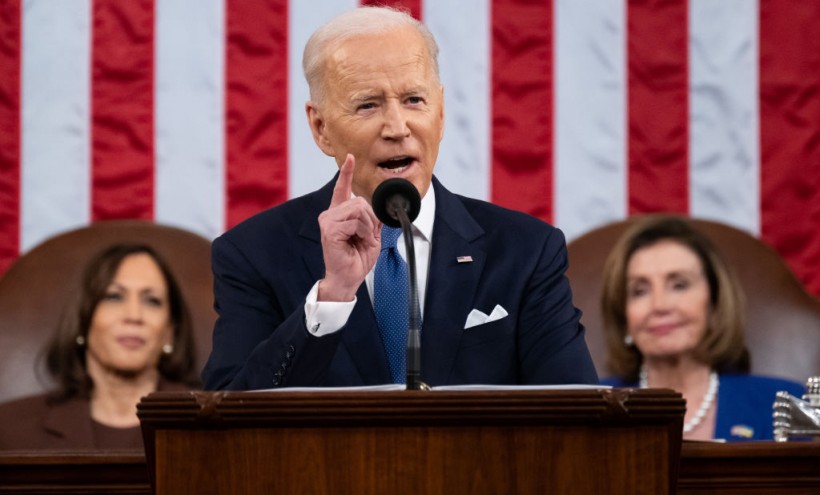
"The biggest investment in manufacturing in American History" is just a passed bill away.
President Joe Biden recently called on Congress to pass the Creating Helpful Incentives to Produce Semiconductors for America Act (CHIPS Act) during his State of The Union (SOTU) Address this Tuesday, telling it to "send [the bill] to my desk. I'll sign it."
The President's plea was made in light of Intel's announcement that it will be ready to add $80 billion to its existing initial investment of $20 billion to construct two new leading-edge chip factories in Ohio.
Why the CHIPS Act is Important
According to the Semiconductor Industry Association, the CHIPS Act is a law that would provide semiconductor manufacturers with a $52 billion subsidy. This subsidy would serve as an incentive to promote semiconductor manufacturing and increase investments in semiconductor research in the U.S.
The Act also provides an income tax credit for semiconductor equipment or manufacturing investment through 2026, per the Act's page on Congress' website.
Additionally, the Act was created to fill the gaps and vulnerabilities in America's supply chain that were discovered at the onset of the semiconductor shortage brought on by the onset of the COVID-19 pandemic. The Act also gives America the ability to compete with the substantial subsidies offered by competitors overseas, such as China.
Read More: Apple Stops Product Sales in Russia
The Act also provides an income tax credit for semiconductor equipment or manufacturing investment through 2026, per the Act's page on Congress' website.
Additionally, the Act was created to fill the gaps and vulnerabilities in America's supply chain that were discovered at the onset of the semiconductor shortage brought on by the onset of the COVID-19 pandemic. The Act also gives America the ability to compete with the substantial subsidies offered by competitors overseas, such as China.
President Biden noted this point in his SOTU address, saying that America needs a level playing field with China and other competing countries "for the jobs of the future."
The Act, which was introduced on June 6, 2020, has since gathered support from both Republican and Democratic parties, with only a minority in the extreme flank of either party opposing the Act. According to Protocol, the supply-chain issues experienced by consumers due to the shortage was one compelling reason, along with an "increasingly adversarial relationship" with China.
Hurdles and Roadblocks
The Senate has already approved the $52 billion in funding for the CHIPS Act as part of the U.S. Innovation and Competition Act, but Congress has yet to pass the act into law.
Why not?
Protocol mentioned in their report that the delay in Congress may be due to a matter of priority setting and an issue with the Act itself.
At the time when Protocol's article was published, the U.S. government was still busy and too focused on making sure the government remains funded, which puts the Act on the proverbial backburner.
Another issue is that the Act comes with a plan to reform how the U.S. government would fund research and development - it would change who gives the funding and how the funding would be given, which was seen as a problem for some lawmakers.
Intel's Investment to the US
Nevertheless, the CHIPS Act not being passed into law didn't stop Intel to make an initial investment of $20 billion to build two new leading-edge chip factories in Licking County, Ohio on January 21, 2022.
The construction project, which would span 1,000 acres, would create 7,000 constructions jobs throughout the build and 3,000 Intel jobs after construction, per Intel's release on the matter. The factories can fit eight chip factories and support operations and ecosystem partners. Intel said that the total investment in the site could grow as much as $100 billion over the next decade, making it one of the largest semiconductor manufacturing sites in the world.
Intel expects that production will come online in 2025.
However, Intel CEO Patrick Gelsinger told Biden that Intel is ready to increase its investment from $20 billion to $100 billion, per a CNET report. Should Intel go through with its additional investment, it would be one of the biggest investments in manufacturing in American history.
Gelsinger previously said that Intel would accelerate and enlarge its investment in Ohio if it receives subsidies provided under the CHIPS Act, per a Washington Post article.
Related Article: What to Know About the Global Chip Shortage










